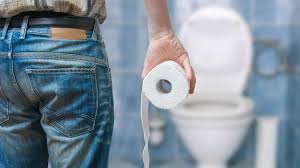This post is also available in:
Tiếng Việt (Vietnamese)

Know the basics
What is hemorrhoids?
Hemorrhoids are swollen and inflamed veins around the anus or lower rectum. They may appear inside the rectum or around the anus. This is usually a result of straining during a bowel movement. The type of hemorrhoid depends on where it occurs.
- Internal hemorrhoids. These hemorrhoids are found inside your rectum. Internal hemorrhoids usually donot hurt but they may bleed painlessly.
- External hemorrhoids.These hemorrhoids outside the anus. They can be itchy or painful and may sometimes crack and bleed.
Hemorrhoids are not serious and contagious. They usually resolve on their own or can be easily treated with medications.
How common is hemorrhoids?
Hemorrhoids are very common. According to researches by age 50, almost half have had an episode of hemorrhoids. Hemorrhoids affect both men and woman, but are more common in pregnant women and patients with either chronic constipation or diarrhea.
Know the symptoms
What are the symptoms of hemorrhoids?
The common signs and symptoms of hemorrhoids are:
- Bleeding during a bowel movement that is bright red and painless;
- Itching and irritation in the rectal area;
- Pain and discomfort;
- Swelling around the anus;
- A sensitive or painful lump near the anus.
Most discomfort and pain are caused by external hemorrhoids. Internal hemorrhoids usually do not cause any pain.
There may be some symptoms not listed above. If you have any concerns about a symptom, please consult your doctor.
When should I see my doctor?
You should call your doctor if any of the following:
- Your hemorrhoids are painful cause pain and do not resolve with home remedies;
- If your stools are black and tarry;
- If you find blood in your stools;
- If you have dizziness or lightheadedness.
Your hemorrhoids may be a sign of as serious health condition. It is important to get checked with your doctor.
Know the causes
What causes hemorrhoids?
Hemorrhoids are caused by swollen veins that develop from an increased pressure in the lower rectum. Factors that cause this pressure may include:
- Straining during bowel movements;
- Sitting for long periods of time;
- Having chronic diarrhea or constipation;
- Being overweight or obese;
- Being pregnant;
- Having a low-fiber diet.
Know the risk factors
What increases my risk for hemorrhoids?
There are many risk factors for hemorrhoids, such as:
- Jobs that require sitting or standing for long periods.
- Chronic diarrhea or constipation.
- Being pregnant.
- Anal intercourse.
- Diet high in fat and low in fiber.
- Being over 60 years old.
You should consult your doctor for more details.
Understand the diagnosis & treatment
The information provided is not a substitute for any medical advice. ALWAYS consult with your doctor for more information.
How is hemorrhoids diagnosed?
To give you a proper diagnosis, your doctor may perform the following test:
- Medical and physical exam;
- Visual inspection of the inside of your anal canal. This is usually done with a medical instrument that can inspect the inside of your anus (anoscope, proctoscope or sigmoidoscope).
How is hemorrhoids treated?
Some hemorrhoids may go away on their own. But some hemorrhoids that cause symptoms may need treatment. These treatment options may include:
- Fiber supplements such as psyllium (Metamucil) or methylcellulose (Citrucel) can help bulk up your stools and relieve constipation.
- Over-the-counter creams and suppositories may temporarily relieve the pain and itching of hemorrhoids.
Hemorrhoid removal, also known as hemorrhoidectomy, may be required if all other options fail.
Read more post:
Lifestyle changes & home remedies
What are some lifestyle changes or home remedies that can help me manage hemorrhoids?
The following lifestyles and home remedies might help you cope with hemorrhoids:
- Eat a high fiber diet and drink plenty of water.
- Sitting in a tub of warm water for 10 minutes several times a day.
- Exercise more.
- Keep the anus area clean
- Donot use dry toilet paper.To help keep the anal area clean after a bowel movement, use moist towels or wet toilet paper that doesnot contain perfume or alcohol.
- Apply cold.Apply ice packs or cold compresses on your anus to relieve swelling.
If you have any questions, please consult with your doctor to better understand the best solution for you.
Sources:
- Ferri, Fred. Ferri’s Netter Patient Advisor. Philadelphia, PA: Saunders / Elsevier, 2012. Print edition. Page 305
- Porter, R. S., Kaplan, J. L., Homeier, B. P., & Albert, R. K. (2009). The Merck manual home health handbook. Whitehouse Station, NJ, Merck Research Laboratories. Print edition. Page 185
- Hemorrhoids .http://www.mayoclinic.org/diseases-conditions/hemorrhoids/basics/definition/con-20029852. Accessed July 14, 2016.
- Hemorrhoids .http://www.niddk.nih.gov/health-information/health-topics/digestive-diseases/hemorrhoids/Pages/facts.aspx. Accessed July 14, 2016.
- Hemorrhoids .http://familydoctor.org/familydoctor/en/diseases-conditions/hemorrhoids.printerview.all.html. Accessed July 14, 2016.
- Hemorrhoids .https://www.nlm.nih.gov/medlineplus/ency/article/000292.htm. Accessed July 14, 2016.

